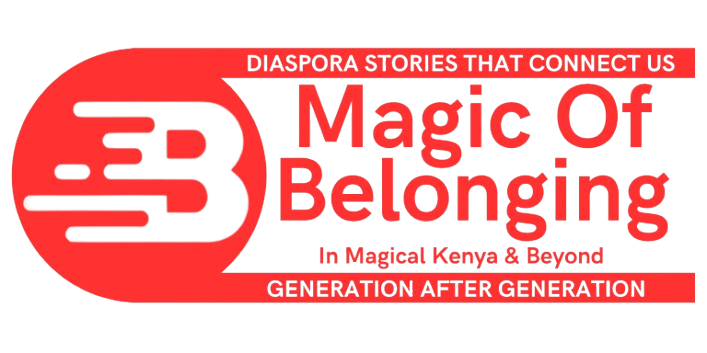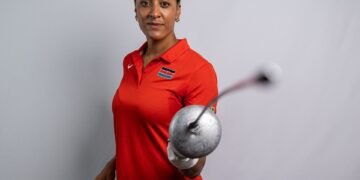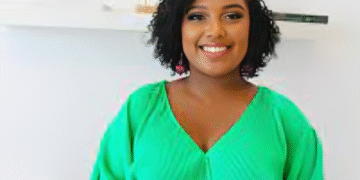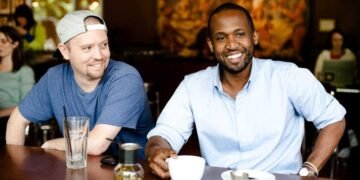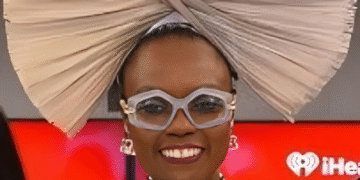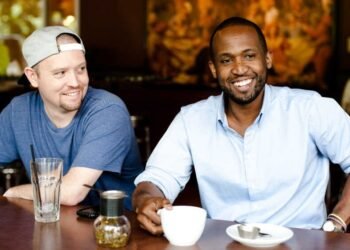When Rita Luise Bühring closes her eyes and thinks of home, she doesn’t see walls or borders. She feels the wind off the Indian Ocean, hears jazz floating through beach bars, and smells Saturday afternoons layered with Swahili spices and her German father’s cooking. She sees Diani.
Long before life introduced her to loss, bureaucracy, and the burden of fitting in, Rita belonged. And not in a metaphorical sense—she belonged bodily, wholly, unshakably—to the coast of Kenya. Diani wasn’t just a town; it was her childhood heartbeat.
Born to a Kenyan mother and German father, Rita’s early life in Diani Beach was symphonic. She grew up where cultures danced rather than collided. Her family of five—two parents, two brothers, and one happy dog—lived with effortless ease in a space where mixed heritage wasn’t a question, but a language spoken fluently through shared meals, long walks, and unlimited Sunday Coca-Colas.
“My bag was packed with joy,” she says now. “With exciting things and a bright future.”
But life, as it often does, intervened with violent unexpectedness.
A wonderful serenity has taken possession of my entire soul
The Day the Bag Was Taken

In 2007, just after her ninth birthday, Rita’s world ruptured. She lost both parents. In a matter of months, the warm, steady rhythms of her life vanished. No more beach bar jazz. No more rituals. No more home.
She was shuffled—relatives’ homes, temporary beds, unfamiliar rules. A child once anchored in joy was suddenly weightless in grief, tossed between places, with no say. No school. No friends. No dog. No explanations.
“My beautiful bag was stolen away,” she recalls, “with a bright future inside.”
Her childhood in Diani became a myth she carried in her chest—a place she longed for, a self she feared she’d never meet again.
A New Name, But Not a New Home
At eleven, Rita was adopted by her aunt and taken to Switzerland. The move brought structure, safety, and love. Her new parents provided everything a child could ask for—except the feeling she needed most: true belonging.

In the snow-dusted streets of Europe, she stood out. Black in a white space. Adopted in a world of birth families. Kenyan and German in a place that rarely acknowledged either.
She adapted—smiling when expected, camouflaging when needed. Her aunt noticed: Ruta was shape-shifting to survive.
“The tag changed from orphan to adopted,” she says. “But the feeling didn’t.”
Switzerland gave her warmth and winter coats. But Diani had given her roots. And those can’t be replaced with passports or Swiss chocolate.
The Baggage of Birmingham
At 18, hungry for diversity and hoping for kinship, Rita moved to Birmingham. But the promise of community unraveled quickly. For the first time, race—her light skin, her mixed identity—became an accusation.
She wasn’t Black enough. Or Kenyan enough. Or German enough. Just too visible and too invisible all at once.
“I realized for the first time that my race was relevant,” she reflects.
The loneliness returned, this time heavier. She was now a young woman with no country that claimed her fully, no language that spoke her entirely. Her bag, once bursting with color, felt padded with questions.
Rediscovering the Map
Everything shifted at university in Bristol.
There, while studying Early Childhood Development, Rita encountered Bowlby’s Attachment Theory. As she read about the need for secure early bonds, something inside her clicked.
“Belonging,” she discovered, “is a biological need. And mine had been severed too soon.”
It wasn’t her fault.
This wasn’t just psychology—it was permission. Permission to mourn what she lost. Permission to seek what she needed. And permission to build something new.
So she decided to go back—to the very place where her story began.
Back to Diani: A Homecoming with Cracks
Her return to Kenya wasn’t cinematic. It was raw.
The house was there, but hollow. The roof sagged. The paint peeled. The dog was gone. Nothing fit her memory. Diani, once her haven, felt like a haunted shell.
“I had hoped to reacquire the bag I lost all those years ago,” she admits. “But it wasn’t there.”
The moment broke her. But it also birthed her.
Kenya—the physical place—could never be nine-year-old Rita’s home again. But Kenya—the origin, the feeling, the echo—could still be her compass.
Choosing What Belongs in Her Bag
With fierce intentionality, Rita started choosing what to carry forward. What once was stolen, she now reclaimed—on her own terms.
- She returned to university not just to learn, but to lead.
- She became President of the East African Society—anchoring herself in Kenyan culture while creating community for others navigating diasporic dislocation.
- She raised funds to build playgrounds in Uganda—gifting children a piece of childhood joy she once lost.
- She was elected Diversity and Inclusion Rep, honored in the university’s Black Hall of Fame.
And perhaps most powerfully, she began to heal—not by finding the same home, but by making a new one, with the same roots.
“I realized that I had the power and maturity to decide what belongs in my bag,” she says now.
And what belongs? Love. Purpose. Family. Community. Advocacy. The East African spirit. The lessons of her loss.
The Unbreakable Thread
Rita Luise Bühring’s story is not about finding her way back to Kenya. It’s about understanding that Kenya never left her.
Diani was her Eden—but the belonging she seeks is not buried in white sand or beneath a mango tree. It’s woven through her intentionality. Through the people she lifts. Through the spaces she creates. Through the child she was, and the woman she chose to become.
She’s now pursuing her Master’s in Psychology of Education, unlocking how identity is formed and how trauma can be transformed.
But she already knows one truth:
“As long as I have my bag with me, that is where I belong.”
And her bag? It’s no longer missing.
It’s glowing. Full. And unmistakably Kenyan.
